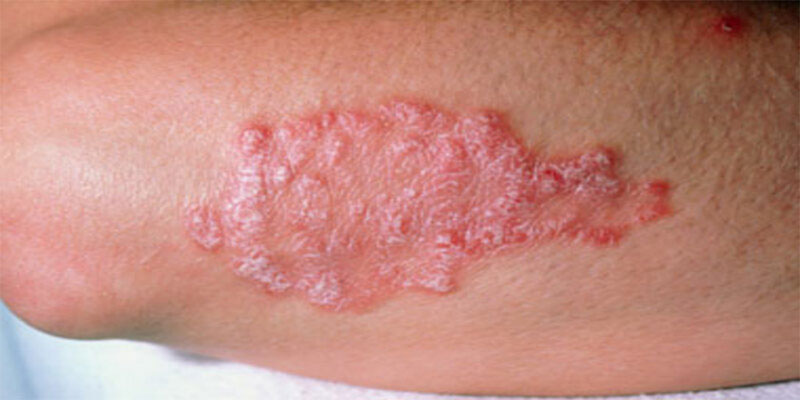Psoriasis is a skin condition that typically affects the knees, elbows, trunk, and scalp. It generates a rash with itchy, scaly spots. Psoriasis overview is a frequent, chronic condition that has no cure. It might be uncomfortable, distracting, and even painful. In many cases, the sickness follows cyclical patterns, with an increased severity followed by a period of relative calm. In those who are genetically predisposed to developing psoriasis, the illness may be triggered by exposure to certain infections, injuries, burns, or medicines. A variety of therapies exist to help with symptom management. You may also try altering your routine and picking up new coping strategies to help you deal with your psoriasis.
Introduction
Lifelong nigh invulnerable inflammatory skin disease known as psoriasis is also accompanied by morbid conditions such as psoriatic arthritis, mental health issues, and cardiovascular and hepatic illnesses. The World Health Organization recognized psoriasis as a major non-communicable disease in 2014 and emphasized the suffering caused by incorrect diagnoses, subpar care, and stigmatization of this condition. 1 According to the Global Burden of Disease Study, 5.6 million people of all ages had disability-adjusted life years (DALYs) due to psoriasis in 2016, which is at least three times more than inflammatory bowel disease.
Causes
Psoriasis is thought to be brought on by immune system disorders, enzymes, and other elements that control skin cell division. Simply put, an unbalanced immune response causes inflammation and an abrupt growth of immature skin cells.
- Psoriasis is a condition that is influenced by genes. According to research, the illness can be warded off by a change in the LCE gene family. One of these genes produces the proteins necessary to keep the skin's barrier in place.
- Studies involving monozygotic twins, however, indicate that environmental influences may also have a role.
- It appears that psoriasis is associated with eight important psoriasis susceptibility genes (PSORS 1 to 9). Psoriasis is linked to several distinct mutations of these genes.
- Strong correlations exist between psoriasis and certain histocompatibility antigens (HLA).
Risk Factors

One or perhaps more family members have the condition in 35% of people living with psoriasis. There could be a connection between psoriasis and being overweight. The chance of developing psoriasis is increased in people with celiac disease. People with celiac disease may benefit from reduced psoriasis symptoms due to following gluten-free diets. Dyslipidemia, or excessive cholesterol/triglyceride levels, including heart disease, may be more common among people living with psoriasis.
Treatment
Excimer laser, phototherapy, as well as topical and systemic medicines are available treatments for moderate to severe psoriasis. Combination medicines frequently outperform individual therapy.
While phototherapy, which exposes the skin to UV light, can assist with psoriasis symptoms, it also raises the risk of skin cancer.
- Psoriasis, which does not react to topical medications or covers a significant portion of the body surface, is treated with biological medications that attack the immune system, the disease's source. Many medications have been authorized, and others are being researched.
- The oral medication apremilast (Otezla) is not a biologic.
- Researchers are still looking into how other dietary components, such as vitamin D supplements as well as omega-3 fatty acids (found in fish oil), can help treat psoriasis.
The Course Of Psoriasis Disease

Unfortunately, there is presently no cure for psoriasis, but its severity may be reduced over time or controlled with treatment. Some illnesses cause severe, debilitating itching, pain, and stiffness in patients. Psoriasis patients who have lesions that are easily seen by others may have feelings of shame or guilt. Stress, worry, isolation, and poor self-worth are all possible outcomes.
Conclusion
With psoriasis, skin cells may proliferate up to ten times more rapidly than normal. Consequently, the affected areas of skin become red, rough, and covered with white scales. They may develop anywhere on the body, but the most common places are the knees, scalp, elbows, and lower back. Psoriasis isn't contagious from person to person. Members of the same family can experience it occasionally. Typically, psoriasis first manifests in early adulthood. It mostly impacts a few specific regions for most people. Psoriasis can spread to significant areas of the body in severe cases. Throughout a person's life, the patches may heal and afterwards reappear. Uncomfortable itching and discomfort are symptoms of the autoimmune skin disorder psoriasis. The type of plaque psoriasis is the most prevalent. Skin that is thick and scaly is the result. Psoriasis treatment may assist manage symptoms even though there is no cure. For psoriasis, your doctor might suggest certain lotions or ointments.

How Bad Sleep Patterns Could Raise Heart Disease Risk In Older Adults
Oct 15, 2024

High-Fat Foods That Are Good For Your Health
Nov 07, 2023

What Are the Causes of Chronic Migraine?
Oct 26, 2023

What Is a Meniscal Cyst
Dec 13, 2023

An Overview of Heart Failure
Oct 27, 2023

Foods That Could Be the Key to Keeping Your Memory
Dec 03, 2023

Buttock Pain Causes and Treatment Options
Nov 13, 2023

Why You Shouldn't Drink "Healthy Coke" If You Care About Your Teeth or Stomach
Feb 08, 2024



